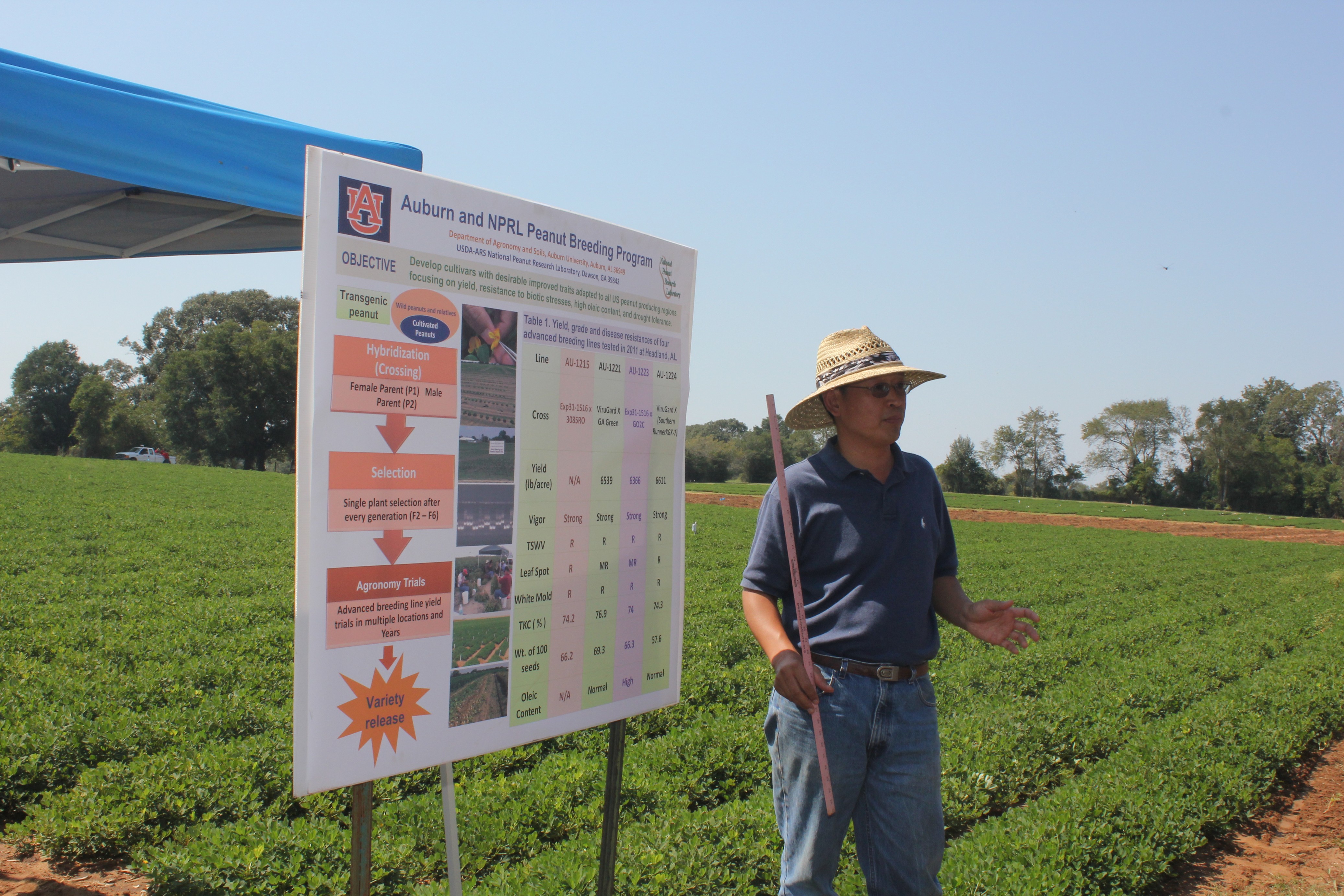 Charles Chen, Associate Professor and Geneticist/Peanut Breeder, shared information with tour attendees about a peanut breeding, genetics, and genome program conducted by Auburn University and the USDA-ARS National Peanut Research Laboratory that was established in 2007. The major objectives of the research are developing cultivators with desirable improved traits adapted to all U.S. peanut producing regions; and enhancing elite peanut germplasm through conventional and genomic approaches, and genetic transformation. The program focuses on high yield, resistance to tomato spotted wilt virus, leaf spot, maturity, and seed characteristics (size, split, taste et al.). High oil content, high oleic and low linoleic, and drought tolerance are also emphasized. The program goals are to understand the genetic principles of important agronomic traits in peanuts; to map quantitative trait loci (QTL) underlying the desired traits in peanuts; to explore genetic potential from genes to genomes for peanut improvement, and to discover new genes related to desirable agronomic and seed quality traits.
Charles Chen, Associate Professor and Geneticist/Peanut Breeder, shared information with tour attendees about a peanut breeding, genetics, and genome program conducted by Auburn University and the USDA-ARS National Peanut Research Laboratory that was established in 2007. The major objectives of the research are developing cultivators with desirable improved traits adapted to all U.S. peanut producing regions; and enhancing elite peanut germplasm through conventional and genomic approaches, and genetic transformation. The program focuses on high yield, resistance to tomato spotted wilt virus, leaf spot, maturity, and seed characteristics (size, split, taste et al.). High oil content, high oleic and low linoleic, and drought tolerance are also emphasized. The program goals are to understand the genetic principles of important agronomic traits in peanuts; to map quantitative trait loci (QTL) underlying the desired traits in peanuts; to explore genetic potential from genes to genomes for peanut improvement, and to discover new genes related to desirable agronomic and seed quality traits.
